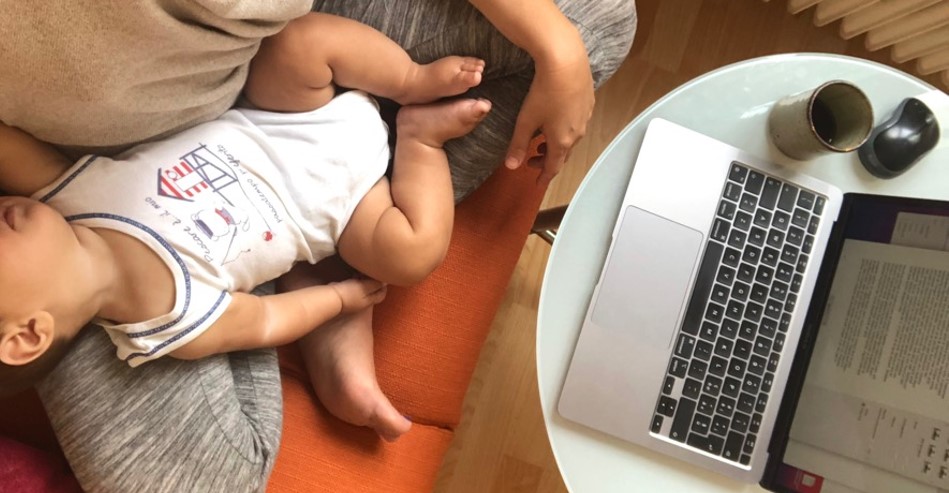By Cecilia Luzi
On 16th July 2020 at 9 am, I received an email from Professor Reiher, welcoming me to join the Japanese Studies department at FU Berlin as a research assistant on the project Urban-rural migration and rural revitalization in Kyūshū. A couple of hours later, a £8 Clear Blue test displayed the word “pregnant” on its digital screen.

Copyright © Cecilia Luzi 2020
Before that day, I would have never thought that pursuing a PhD and having children at the same time was even possible. Since I started a doctoral degree later than usual, I saw my friends going through 3, 4 years of doctoral formation. Most of them struggled with late night work, everyday anxiety and occasional frustration. I could not imagine how adding a crying baby to the equation would be a wise thing to do. However, I soon realized I was only seeing half of the picture. I was in need of other points of view, and so I asked for advice. To my surprise, those very same friends helped me realize that this could actually be a great time to have children. Your timetable is flexible; most of your work can be done at home in front of a computer; and you have at least 3 years of assured salary, which, sad truth, is among the longest period of stable job a researcher could aspire to today. Moreover, my contract as a research assistant provided me with a paid maternity leave. I will always remember what Prof Reiher told me when I announced her the news before signing the contract: “If we as researchers would wait a wise time to have kids, we would never have them!”.
So, the day of my 32nd birthday my partner and I moved to Berlin, 4 months pregnant and with an exciting job waiting for me at Freie Universität. I was enthusiastic about this new beginning, and everything was going very well with my pregnancy. Despite all of this, I will not deny, it has been a hard long semester. The loneliness imposed by Covid-19 second wave, the isolation that kept us away from our families even during Christmas time, and the long dark winter in Berlin was a lot to take. At work, I was very happy and excited to collaborate with my colleagues and supervisor but at times, I felt very nervous and anxious about the future. What I did not realize yet was that becoming a mother and starting a family would be a great opportunity for my PhD research.

Copyright © Cecilia Luzi 2020
How so? I only started to think about this recently because I have to find a new way of doing and organizing research. I now believe that being a mum makes me more indulgent toward myself and the people around me; it gives me a great dose of empathy which is very useful for an anthropologist heading to a long-time fieldwork; it opens new perspectives on my profession and helps me questioning my views on other people’s choices.
Right now, I focus on navigating through every single week as good as I can. Every morning I wake up not knowing what time I will be able to take my coffee, if my son’s naps will be long enough to send a couple of emails from home; and at what time I will be able to get to the office. I often think about how to organize the ethnographic part of my project with him, but also about the future in general. How will we manage to keep living in the same place with my partner, who is a researcher too, while our son is growing? Will I find the time to bring him to swimming classes and to write my thesis at the same time?
Once Japan will reopen its borders for foreign researchers, the three of us will leave for Kyūshū where I will start my fieldwork. Bringing family to the field is not new to social anthropologists[1] in Japan[2]. However, I am very anxious about having my family with me on what is supposed to be the most intense and introspective period of my research. At the same time, I believe research can and should be gentler, and we will find new sources of inspiration for doing this job differently along the way.
[1] Levey, H. (2009). “Which one is yours?”: Children and ethnography. Qualitative Sociology, 32(3), 311-331.
[2] Allison, A. “Japanese mothers and obentōs: The lunch-box as ideological state apparatus.” Anthropological Quarterly (1991): 195-208.
